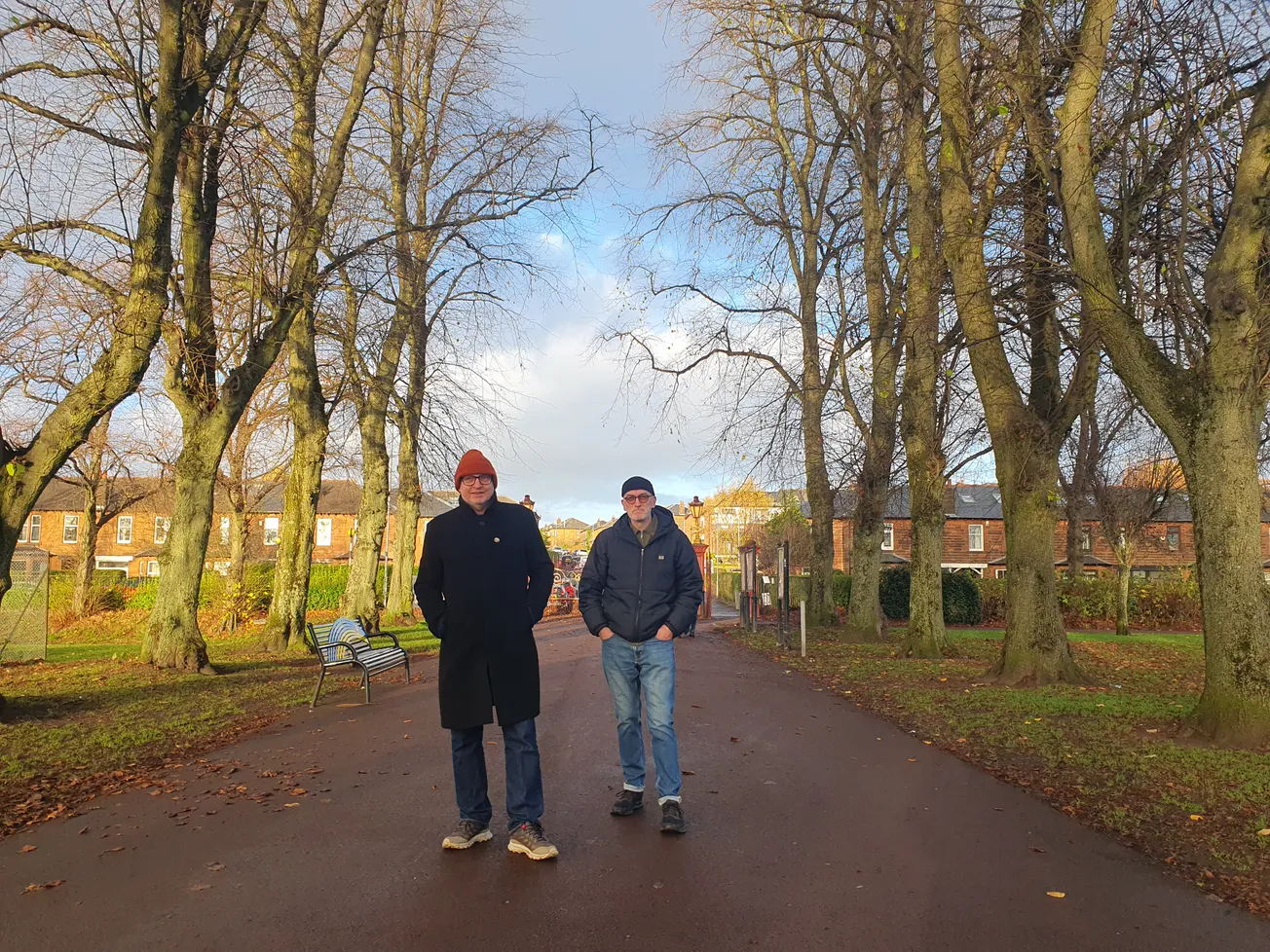“We used to get dressed up as glam rock stars and have debates about political theory,” explains Professor David Archibald. “The city of Glasgow was in there from the start, even if we discussed the Paris Commune.”
We’re standing watching the Clyde lazily flow by as David and bandmate Bob Anderson explain the origins of their group The Tenementals. Their preceding project, the Glasgow Glam Rock Dialogues, was a series of events where live debates on concepts like Universal Basic Income shared a stage with flamboyant musical performances. The idea: exploring political questions without skimping on fun. “When we thought the debate was getting too heavy, we sung a glam rock song,” says David.
The makeup is now gone, but several participants went on to collaborate on a new venture — creating a history of Glasgow’s radical past through song. David views this and its sprawling glam predecessor as distinct projects, but there’s overlap here: the same intersection of politics, rock music and the city.
As interview subjects, David and Bob make a decent double act. David, in long black coat, expounds on the inspiration their band has found in Glasgow’s radical past, whilst Bob, in fisherman’s beanie and smart puffer jacket, offers thoughtful comments and the odd minor correction.
Frontman David generates much of The Tenementals’ material, along with guitarist Simon Whittle. He’s lived here since moving aged 20 from Clydebank and holds a day job teaching film studies at the University of Glasgow. As a Professor of Political Cinema, he’s interested in how culture is affected by politics and specialises in how the Spanish Civil War (of which more in a moment) has been depicted on screen. Bob, the drummer, grew up in the East End and has spent most of his working life as a Teacher of the Deaf, something he does alongside publishing academic papers on this city’s popular music history and guest lecturing in country music at the University of Glasgow.
The band has recently released their debut album Glasgow: A History (Vol.I of VI). The record is crowded with heroes and villains from the city’s past, including the unidentified serial killer Bible John and trade union leader Jimmy Reid, whilst subjects usually confined to academic papers – Glasgow’s struggles with deindustrialisation and post-war social housing — are turned into catchy tunes. But why ‘I of VI’, is that a joke, or a statement of intent? “That’s a good question,” David grins. “We’ve always said that The Tenementals project is unfinished. We might end up making seven.”
Given their album’s focus, I wanted to interview them while heading to parts of this city which have inspired their music – the places on our doorstep that we might walk past every day, but which formed the backdrop to moments of radical history. When I put this idea to them, they suggest we meet at La Pasionaria, the statue of the Spanish communist Dolores Ibárruri which stands on the banks of the Clyde by Glasgow Bridge.
La Pasionaria was erected to commemorate the foreign volunteers who served during the Spanish Civil War on the Republican side within the International Brigades. Amongst their ranks were 65 Glaswegians who died fighting against General Franco’s Nationalist forces. Though far from being a simple commemoration, the statue itself proved contentious. When sculptor Arthur Dooley proposed the piece in the 1970s, it prompted emotional debate between the Labour and Conservative councillors (who, GlasgowLife reported, accused Labour of erecting a "horrid monument to a horrendous hag" in the early hours of the morning in order to lessen their chances of a protest accompanying this).
Glasgow deserves great journalism. You can help make it happen.
You're halfway there, the rest of the story is behind this paywall. Join the Bell for full access to local news that matters, just £8.99 for the first 3 months.
SubscribeAlready have an account? Sign In
Comments
How to comment:
If you are already a member,
click here to sign in
and leave a comment.
If you aren't a member,
sign up here
to be able to leave a comment.
To add your photo, click here to create a profile on Gravatar.






